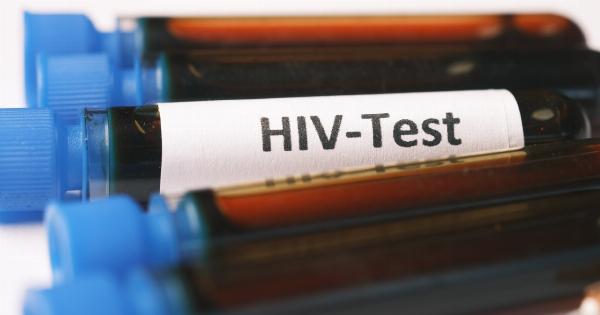HIV, also known as the human immunodeficiency virus, is a virus that attacks and weakens the immune system. This virus can lead to a severe infection known as acquired immunodeficiency syndrome (AIDS).
HIV can be transmitted from one person to another through exposure to infected blood or body fluids such as semen or vaginal fluids. It is a deadly virus, and early detection and treatment are necessary to prevent the spread of infection.
The Importance of HIV Screening
HIV screening is the process of testing for the presence of HIV in the blood.
This screening process is critical in the detection of HIV, as early detection and treatment can prevent the progression of the virus and prevent the spread of the virus to others. If left untreated, HIV can lead to AIDS and ultimately cause death.
There are various reasons why HIV screening is essential, and the following are some of the most prominent reasons why HIV screening is critical.
Early Detection Saves Lives
The earlier HIV is detected, the better the chances of survival. Early detection enables infected individuals to receive medical attention and treatment that can stop the replication of the virus in the body.
With appropriate medical care and treatment, the progression of the virus can be slowed, and infected individuals can lead longer, healthier lives.
Reduces The Spread of HIV
Early detection of HIV means that infected individuals can be counseled and provided with the necessary information on how to prevent the spread of the virus to others.
When individuals know their status, they can take the necessary precautions to avoid transmitting the virus to others. Decreasing the spread of HIV through early detection and awareness is one of the most effective strategies to combat the virus.
Encourages Safe Sexual Practices
HIV is primarily transmitted through unprotected sex; therefore, HIV screening carries the additional benefit of encouraging safe sexual practices.
Individuals who know their HIV status can make more informed decisions about their sexual health and take steps to reduce the risk of transmitting the virus to their partners. This can be achieved through the use of condoms during sexual intercourse and other safe sex practices.
Allows for Early Medical Intervention
HIV screening opens the door for medical practitioners to provide early intervention to infected individuals.
Treatment using Antiretroviral therapy (ART) helps infected individuals live longer and can also reduce the risk of transmitting the virus to others. Early intervention also enables healthcare providers to monitor patients closely and identify any potential health issues that may arise due to the virus.
Makes the HIV-Positive Status Manageable
Knowing one’s HIV status can be overwhelming and emotionally challenging. However, since there is no cure for HIV, early detection can make the status manageable.
Individuals who are diagnosed with HIV can receive necessary care and treatment, manage their condition effectively, and lead a normal life. With proper treatment and care, individuals living with HIV can thrive and live long healthy lives.
Accessible Screening Methods
In the past, HIV screening was inaccessible, and those who wanted to get tested had to make special arrangements. Today, HIV screening is accessible and available almost everywhere, from hospitals to testing centers.
The screening procedure is simple and takes only a few minutes. There are several screening options available, including a blood test, oral swab, or rapid home test kit.
Eliminates Stigma
Stigma and discrimination remain one of the significant barriers to HIV testing. When HIV screening is encouraged and accessible, it can reduce the stigma surrounding the condition.
Individuals who may be hesitant to get tested due to social stigma can be encouraged to take the test and receive the necessary support and care if diagnosed with HIV. This can help eliminate the discrimination and stigma surrounding the virus and ensure that individuals can receive the necessary care without fear of judgment.
Conclusion
In conclusion, HIV screening is vital in preventing the spread of HIV and allowing early intervention and treatment for those living with the virus.
With accessible HIV testing and treatment options available, it is critical that people know their HIV status and take steps to manage their condition effectively. Early detection remains the most crucial aspect of HIV treatment, and with the right medical care and attention, individuals living with HIV can lead normal, healthy lives.





























